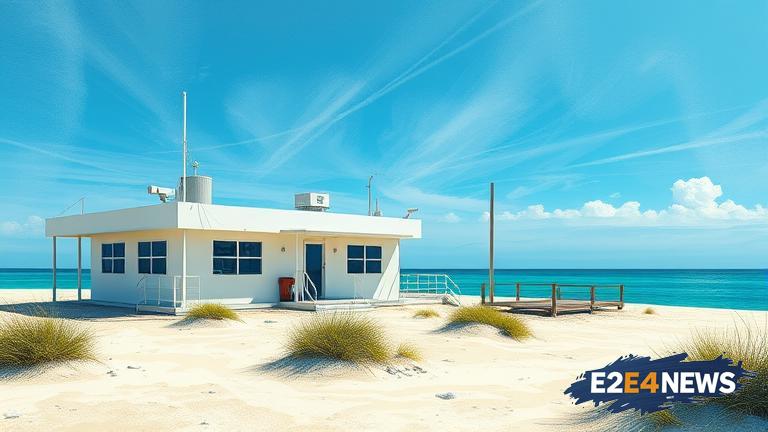The United States Environmental Protection Agency (EPA) has made a significant decision to eliminate its research and development office, which has been a crucial part of the agency’s mission to protect the environment. However, in a surprising move, the EPA has decided to retain the Gulf Breeze lab, located in Florida, which has been a key facility for the agency’s research and development efforts. The Gulf Breeze lab has been involved in various research projects, including the study of water quality, air pollution, and climate change. The lab’s retention is seen as a positive move by many, as it will allow the EPA to continue its critical research work in these areas. The elimination of the research and development office is part of a larger effort by the EPA to reorganize and streamline its operations. The agency has stated that the move is intended to improve efficiency and reduce costs. However, critics have expressed concerns that the elimination of the research and development office will hinder the EPA’s ability to conduct critical research and develop new technologies to address environmental challenges. The EPA has assured that the retention of the Gulf Breeze lab will ensure that the agency’s research efforts will continue uninterrupted. The lab will continue to work on various projects, including the development of new technologies to monitor and mitigate the effects of climate change. The EPA has also stated that the lab will continue to collaborate with other research institutions and organizations to advance environmental research. The decision to retain the Gulf Breeze lab has been welcomed by many in the scientific community, who see it as a vital part of the EPA’s research efforts. The lab’s work has had a significant impact on the development of environmental policies and regulations, and its retention will ensure that this work continues. The EPA’s decision to eliminate the research and development office has sparked controversy, with many expressing concerns about the impact on the agency’s ability to conduct research and develop new technologies. Despite this, the retention of the Gulf Breeze lab is seen as a positive move, and many are hopeful that it will continue to play a critical role in the EPA’s research efforts. The lab’s retention is also seen as a testament to the importance of environmental research and the need for continued investment in this area. The EPA has stated that it will continue to prioritize environmental research and development, and the retention of the Gulf Breeze lab is seen as a key part of this effort. The agency has also assured that it will continue to work with other research institutions and organizations to advance environmental research and develop new technologies to address environmental challenges. Overall, the retention of the Gulf Breeze lab is seen as a positive move, and many are hopeful that it will continue to play a critical role in the EPA’s research efforts.
